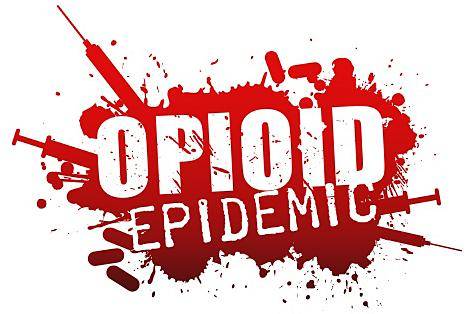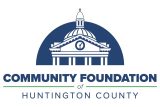Entities to launch substance abuse fund
General
 Posted by: Steve Kimmel 2 years ago
Posted by: Steve Kimmel 2 years ago

Huntington County, the City of Huntington and the Town of Warren are announcing the cooperative establishment of a community Substance Abuse Response Fund in partnership with the Huntington County Health Department and managed by the Community Foundation of Huntington County.
“This is an exciting opportunity for us to make some strong headway into substance abuse in our community. We know that a collaborative approach to substance abuse is going to be the most strategic way to make a change,” said Dr. Matt Pflieger, who leads the Health Department as the Huntington County public health officer.
“The objective driving the collaborative effort is to identify both the strengths in local substance abuse services and the gaps that need filled,” Dr. Pflieger said. “We know that there are three big buckets of things that we want to be working on – prevention, treatment and intervention.”
A five-person oversight board will make determinations on how funds will be spent and distributed to bolster the community’s response to substance abuse issues and monitor results. The board will consist of the public health officer, a City of Huntington appointee, a county appointee, a law enforcement representative and a person in recovery.
To support and sustain the Substance Abuse Response Fund, Huntington County, the City of Huntington and the Town of Warren will contribute their shares of a $507 million Indiana Opioid Settlement negotiated with opioid distributors and manufacturers as part of a larger $26 billion national settlement.
Huntington County received an initial settlement disbursement of $140,865 in late 2022 and is projected to receive a total of about $665,117 over the 16-year state settlement payout period.
The City of Huntington received an initial settlement disbursement of about $116,173 and is projected to receive a total of $577,116 over the 16-year period.
The Town of Warren received an initial settlement disbursement of $4,112 and is projected to receive $19,464 over the same 16 years.
According to the website for Indiana Attorney General Todd Rokita, there were more than 112 prescriptions written for every 100 Indiana residents when opioid prescribing reached it statewide peak in 2012. Fifty-eight of Indiana’s 92 counties had an opioid prescribing rate greater than 100 prescriptions per 100 residents from 2012 through 2016.
Huntington County’s opioid prescribing rate similarly peaked in 2012 at 107.4 prescription per 100 residents. The rate fell to 78.7 by 2016 and 15.35 by 2020, according to data from the U.S. Centers for Disease Control & Prevention.
Across the state, drug overdose deaths have continued to climb even as the opioid prescribing rate was curtailed. Indiana’s overdose deaths rate has risen from 3.2 deaths per 100,000 residents in 1999 to 18.2 in 2014 and 36.7 is 2020.
“This opioid abuse epidemic that we’re facing knows no socioeconomic boundaries, and it affects us all. We are literally at war,” Huntington County Commissioner Rob Miller said. “We need a united Huntington County to confront this epidemic and win the war.”
The City of Huntington’s contributions will be held in an endowment to sustain local substance abuse recovery efforts for the long haul. Warren’s and Huntington County’s portions will be earmarked and made available for immediate needs through an application process open to local organizations and subject to funding decisions made by the oversight board.
“We’ll have a balancing effect of long-term sustainability through the city’s funds and immediate impact through the county’s funds,” Huntington Mayor Richard Strick said January 31 while addressing the city’s Common Council on the topic.
Huntington County residents who want to be a part of the opioid crisis solution are encouraged to make a donation to the Substance Abuse Response Fund by contacting the Community Foundation or visiting its website at huntingtonccf.org.
“This collaboration is an important step in addressing substance abuse in our communities,” Community Foundation executive director Matt Ditzler said. “Together we can make a difference in the lives of our families, neighbors and friends.”
Categories:
About: Steve Kimmel
Take Your Business to the Next Level
Call the Chamber and see how we can help you take your business to the next level. You can become an Ambassador, volunteer for our golf outing, attend one of our networking group meetings and more. Keep this site close by for all the happenings in Huntington County.



